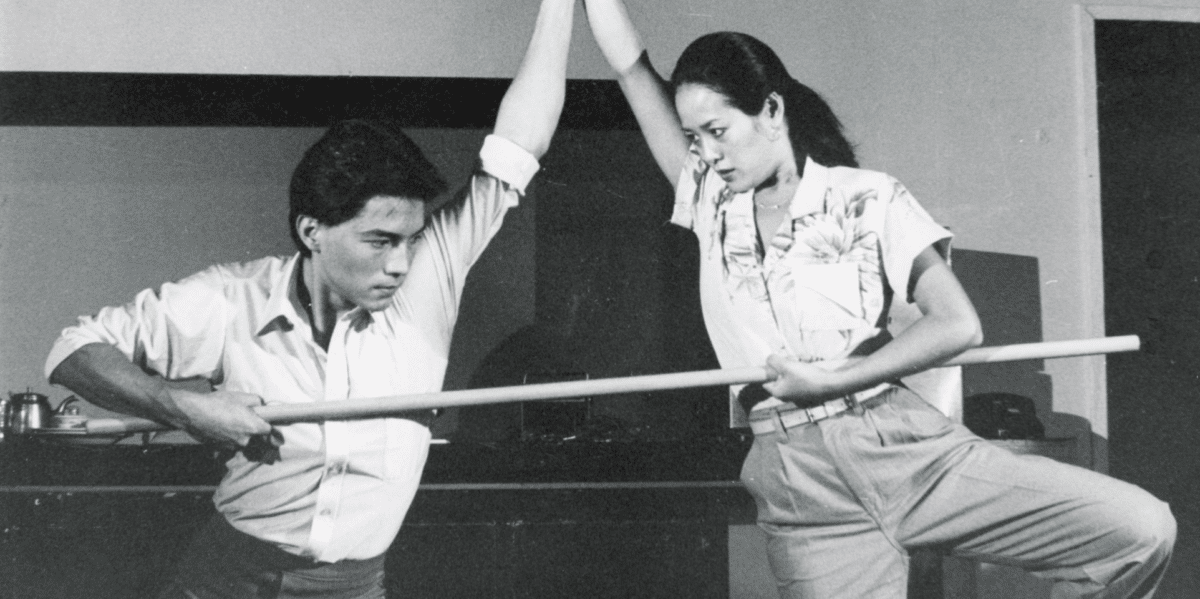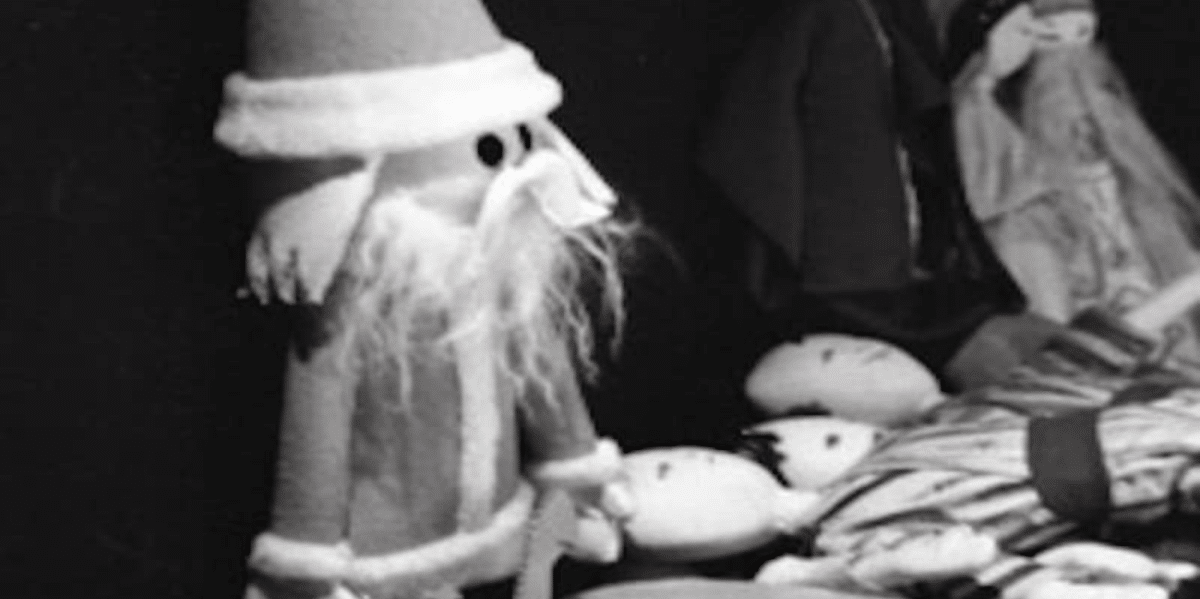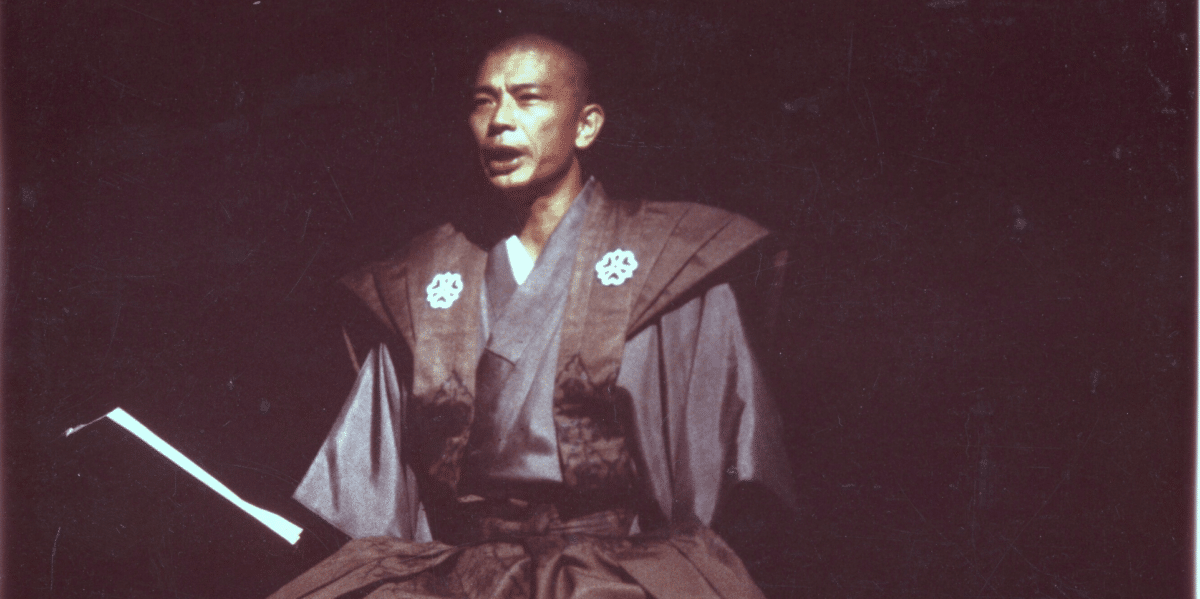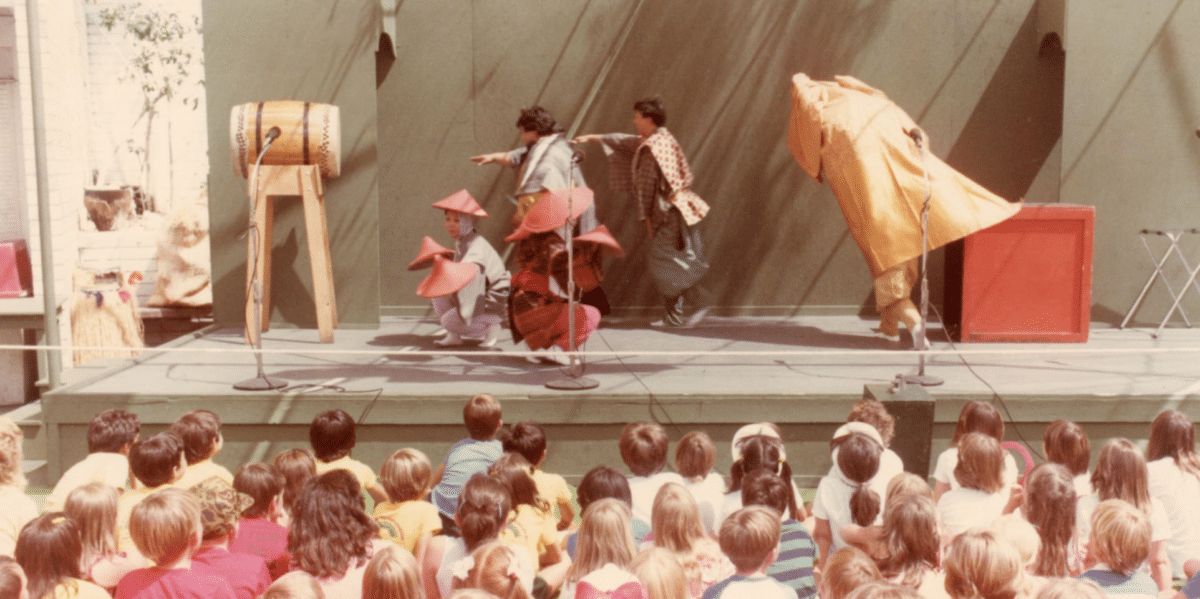The 1970’s






Return to History and Archive
Rashomon (Revival)
By Fay and Michael Kanin
Based on short stories by Ryunosuke Akutagawa
Opened on January 6, 1970
1970
-
The Kanin’s script draws heavily from famed Japanese film director Akira Kurosawa’s 1950 adaptation of the Akutagawa stories. The revival takes place at the Inner City Cultural Center. This revival opened on January 6, 1970 the first production being featured in our 1965-66 season.
Tondemonai - Never Happen
By Soon-Tek Oh
Opened on May 28th, 1970
-
Starring Alberto Isaac and Mako, TONDEMENAI explores the insidious nature of trauma amid a backdrop of ethnic and sexual tensions through the bitter memories of internment for Koji, a Kibei (Japanese American child educated in Japan).
Guilt-stricken after a sexual encounter with a young Chinese man, Koji recalls his traumatic past in the Manzanar internment camp, where he suffered abuse at the hands of a fellow internee, betrayal by his Caucasian wife, and the traumatic suicides of both his wife and his father. At the end of the play, as Koji prepares for release from a mental institution, it is clear that resentment, rage, and frustration will torment him for the rest of his life.
1972
Monkey
By Ernest Harada
This school tour production began on January 22, 1972
-
This play is an adaptation by Ernest Harada of a popular Chinese folk tales about one young monkey’s adventure to save a princess from evil dragon of the west. The school tour production began on January 22, 1972.
Three Kyogens
By Leigh Kim, Betty Muramoto, Irvin Paik
This production is composed by three pieces: Two Lords, Ink Smeared Lady, and The Fox and the Trapper.
No Place for a Tired Guest
Written and directed by Mako
The production was opened on May 7, 1972.
S.P.O.O.S.
By Bill Shinkai
Opened on December 8, 1972
Tales of Juan and Taro
By Glenn Johnson and Alberto Isaac
Opened on October 2nd, 1972; later performed at the Hollywood Bowl
-
The Society for the Preservation of Oriental Stereotypes; it addresses the major concern shared by Asian American actors – the one-dimensional and minor stereotypical characters offered by theater and film industry.
-
This production is composed of two children’s plays. How Juan Found his Fortune is adapted by Alberto Isaac from a Filipino folk tale, in which a poor yet clever boy explores the world to seek his fortune. Urashima Taro is adapted by Glenn Johnson from a Japanese tale about adventures of one fisherman after saving a turtle.
1973-1974
Enchanted Pumpkins
By E.M. Rafn, Sheri Emond, & Irvin Paik
-
This production was a school tour composed of three pieces, The Magic Pumpkin, or How the Seas Came to Be by E.M.Rafn, The Cleverest Princess by Sheri Emond, and Korean Pumpkins by Irvin Paik, all based on folk tales. It was a part of EWP’s Children’s Theatre and the beginning of the Total Theatre Ensemble.
Transfers and the Rooming House
By Conrad Bromberg
Opened March 21, 1973
-
This production was comprised of two short plays by Conrad Bromber. Transfers is about a reporter who is conned by the gang members he intends to interview. The Rooming House is about a shy divorcee whose potential love relationship gradually disillusions as the play unfolds.
Two Shades of Yellow: Coda
By Alberto Isaac
Opened June 28th, 1973
-
This play is part of the two bill production Two Shades of Yellow. It is about a teenage Japanese American Nisei, Henry, who is eager to erase his Japanese heritage. Unable to get rid of his obsession with Caucasian women, his marriage collapses and he is left alone.
Two Shades of Yellow: Yellow is My Favorite Color
By Edward Sakamoto
Opened June 28th, 1973
-
This play is part of this double bill production Two Shades of Yellow. It is about a teenage Japanese American Nisei, Henry, who is eager to erase his Japanese heritage. Unable to get rid of his obsession of Caucasion women, his marriage collapes and he is left alone.
Pineapple White
By Job Shirota
Opened October 4th, 1973
-
This play is adapted from the novel under the same title. The playwright Jon Shirota depicts the agony of an elderly Japanese Hawaiian, who visits his son in Los Angeles. Disapproving of his son’s interracial marriage with a Caucasian woman, he is more concerned about its illegal status. This play discusses the different views of racial relationship from two generations.
The Emperor’s Nightingale
Music by Hatsuo Uda
Book by Alberto Isaac
Based on a play by Sam Rosen
Directed by Mako
Opened December 20, 1973
-
This musical is about a young Chinese emperor’s obsession with a songbird and how he manages to find resolutions to his negligence of his kingdom.
Harry Kelly
By Harold Heifetz
Opened April 4, 1974
1974-1975
-
The story deals with a young interracial relationship at a Japanese internment camp during World War II. It also discusses the question of Japanese American’s national loyalty at the same time period.
In the Jungle of Cities
By Bertolt Brecht
The Year of the Dragon
By Frank Chin
Opened on October 2, 1974
-
Set in a corrupt 1920s Chicago, Brecht’s In the Jungle of Cities features a ferocious battle between two men. One day, a Maylay named C. Shlink appears in the mundane life of bookstore clerk George Garga, and for no reason challenges him to a fight. Garga, whom Shlink attempts to destroy economically, fights back, refusing to be conquered by a foreigner. In order to put himself on equal economic terms with his enemy, Shlink gives up his fortune. Mary, Garga’s sister, falls in love with the newly impoverished Shlink. Enraged by the affair, Garga plots his revenge against Shlink, and the two engage in a fight that ultimately leads to one man’s death.
When We Were Young
By Momoko Iko
Opened on December 18, 1974
-
This play deals with the life in San Francisco’s Chinatown, where the Eng family is celebrating Chinese New Year. The main character, Fred Eng, who works as a guide for Chinatown tourists, struggles among daily racist discrimination, his family relationships, and his adjusting self-identification.
-
This play is written by Momoko Iko, the Rockefeller Foundation Playwright in Residence in 1974. The story is about a middle aged Japanese American couple in Seattle, whose seeming peaceful life suddenly faces topsy-turvey challenges because of their daughter’s unexpected pregnancy. Also, their memory about staying at internment camp still haunts them in certain ways. This production opened on December 18, 1974.
1975-1976
A Doll’s House
By Henrik Ibsen
-
The play centers on an ordinary family—Torvald Helmer, a bank lawyer, his wife Nora, and their three little children. Torvald supposes himself the ethical member of the family, while his wife assumes the role of the pretty and irresponsible little woman in order to flatter him. Into this arrangement intrude several hard-minded outsiders, one of whom threatens to expose a fraud that Nora had once committed without her husband’s knowledge in order to obtain a loan needed to save his life. When Nora’s act is revealed, Torvald reacts with outrage and repudiates her out of concern for his own social reputation. Utterly disillusioned about her husband, whom she now sees as a hollow fraud, Nora declares her independence of him and their children and leaves them, slamming the door of the house behind her.
Revelations as a Tight-Eyed Devil
By Bill Shinkai
Opened on June 25, 1975
-
This one act play is co-produced with the revival of S.P.O.O.S. The play ranges from madness to satire when an Asian American diplomat discovers that he and Robert Redford do not share the same blond hair and blue eyes.
S.P.O.O.S. (revival)
By Bill Shinkai
This production opened on June 25, 1975.
The original production premiered at East West Players in 1972.
-
This one act play is co-produced with Revelations as a Tight-Eyed Devil. The Society for the Preservation of Oriental Stereotypes; it addresses the major concern shared by Asian American actors – the one-dimensional and minor stereotypical characters offered by theater and film industry.
The Chickencoop Chinaman
By Frank Chin
This production opened on September 24, 1975.
-
This play deals with a Chinese filmmaker, Tam Lum, who stumbles in his search for self-identification, while feeling distant from both Chinese and American cultures as he tries to make a documentary of a famous Black boxer.
Nobody On My Side of the Family Looks Like That!
By Dom Magwili
This production opened on December 17, 1975.
-
Liberally sprinkled with a mad doctress, an inarticulate Swedish gardner, a lisping college president, a song and dance troupe, a Christmas crazed mother. Not since Abbott and Costello met Frankenstein or the Beattles cavorted through ‘a hard day’s night’ has there been a show like Nobody on My Side of The Family Looks Like That!”
Three Sisters
By Anton Chekhov
-
The Prozorov sisters (Olga, Masha, and Irina) yearn for the excitement of Moscow; their dreary provincial life is enlivened only by the arrival of the Imperial Army. The sisters’ dreams of a new life are crushed when their brother marries a woman they consider ill-bred and mortgages the house.
The Asian American Hearings: A Multi-Media Extravaganza
Opened on July 1, 1976.
This production is a collective performance which include monologues, songs, dances, slides, and skits which demonstrate the contemporary political issues of Asian Americans.
1976-1977
That’s The Way The Fortune Cookie Crumbles
By Edward Sakamoto
The production opened on October 26, 1976.
-
The play is about a Japanese American, about 28, who has lived voluntarily in the basement of a fortune cookie factory the past nine years without stepping out into the real world and has written the fortunes for the cookies without a single duplication.
And The Soul Shall Dance
By Wakako Yamauchi
Opened on February 16, 1977
-
This piece, Yamauchi’s first full-length play, is written by Wakako Yamauchi, 1976 Rockefeller Foundation in Residence. The story discusses the lives of Japanese immigrants in California in the 1930s, and their dual crises of facing both racism in America and traditional Japanese concepts of family and marriage. This production opened on February 16, 1977. Following the production’s great success, the play would later by produced for television by PBS.
Remembering Wakako Yamauchi after her passing, Tim Dang commented for the Los Angeles Times: “Tim Dang, former artistic director of East West Players, cited Yamauchi as one of four Asian American playwrights — with Edward Sakamoto, Jon Shirota and Frank Chin — who could be considered pioneers for future generations. She was the only woman of the group, and her plays featured another theatrical rarity: strong female protagonists.
Her work cast an unflinching look at cultural identity, and she was the first playwright to truly mine the Issei (first generation) and Nisei (second generation) Japanese American experience, Dang said. Of nearly five dozen Asian American theater companies in the country, Dang added, most have used “And the Soul Shall Dance” in their inaugural season.”
Gee Pop
By Frank Chin
This production opened on June 23, 1977.
-
It is 1977 and the last white man to play Charlie Chan is hiding out on Maui convinced the Chinese are out to get him for his ‘Oriental’ portrayal. Chin subtitles Gee Pop ‘a real cartoon’. We call it a runaway flight through the dark and light passages of the wild, weird, wooley world that is the soul property of Frank Chin.
Psychechain
By Irvin Paik
Adapted from a short story by William Wu
Opened on April 5, 1977
Twelfth Night
By William Shakespeare
-
This play is based upon William F. Wu’s short story “By the Flicker of the One-Eyed Flame.” The play is a satire on the mentality of the broadcast industry. It’s a peek into the future world where ‘commercial’ broadcasting becomes the government’s hallucinogenic tool to control human behavior.
-
Remembering Wakako Yamauchi after her passing, Tim Dang commented for the Los Angeles Times: “Tim Dang, former artistic director of East West Players, cited Yamauchi as one of four Asian American playwrights — with Edward Sakamoto, Jon Shirota and Frank Chin — who could be considered pioneers for future generations. She was the only woman of the group, and her plays featured another theatrical rarity: strong female protagonists.
Her work cast an unflinching look at cultural identity, and she was the first playwright to truly mine the Issei (first generation) and Nisei (second generation) Japanese American experience, Dang said. Of nearly five dozen Asian American theater companies in the country, Dang added, most have used “And the Soul Shall Dance” in their inaugural season.”
1977-1978
Points of Departure
By Paul Stephen Lim
Opened on October 27, 1977.
-
This one act play is part of this two bill production with Bunnyhop, written by Paul Stephen Lim. This play is about a Filipino writer prepares to leave Manila for New York and has conversations with his friend about many issues of immigrants’ life. This production opened on October 27, 1977.
Bunnyhop
By Jeffrey Paul Chan
Opened on October 1, 1977.
-
This play is part of the two bill production with Points of Departure, written by Jeffrey Paul Chan. This one act play is about a Los Angeles theater company rehearsing a play about an old cook in Chinatown, accompanied by his hip Chinatown sidekick to stand against a redneck cowboy. This production opened on October 1, 1977.
O-Men: An American Kabuki
By Karen Yamashita
Opened on December 31, 1977.
-
This play is written by Karen Yamashita, 1977 Rockefeller Foundation Playwright in Residence. The play is a comedy, a nostalgic moment, a bittersweet farewell to our former and present descriptions of ourselves. O-Men is mask. In each generation a mask must be given away to reveal the awakening of a cultural spirit. When O-Men bows her head tears flow through her shadow. But when her face lifts one sees her celebration. O-Men is about the lifting face. This production opened on December 31, 1977.
1978-1979
Voices In The Shadows
By Edward Sakamoto, as the Rockefeller Playwright in Residence
Opened on January 25, 1978
-
Sakamoto wrote this piece as the 1978 Rockefeller Playwright in Residence. The story follows Hideo, an earthy, middle-aged Japanese confronted with the sudden suicide of his daughter. The complexities of the man’s life and emotional make-up have created an individual seething with anger and confusion in his attempts to understand the forces that have put him where he is. This production opened on January 25, 1978.
Frogs
By Aristophanes
-
Dionysus “the raucous god of theatre and inebriation” wants to visit the Underworld and see his favorite playwright, the recently deceased Euripides. Accompanied by his slave Xanthius, Dionysus first consults Heracles and then departs, alive, down into Hades. The pair, who cross into the underworld with the hellish boatman Charon, are mocked by a chorus of frogs, try to fool Heracles’ rival Aeacus with a game of disguises, and eventually become embroiled in an infernal rivalry between Euripides and Aeschylus. Dionysus is called upon by Pluto to judge which was the better playwright, with the winner being returned to the land of the living to provide comfort to war-ravaged Athens.
The Avocado Kid, or Zen and the Art Of Guacamole
Music & Lyrics by Philip Kan Gotanda
Original piece by East West Players
Opened on January 25th, 1979
-
This musical is an original piece by East West Players. Philip Kan Gotanda creates this work based upon one famous Japanese children’s story, Momotaro – the peach boy. The story is about the journey of a young man, who was born from the womb of an avocado. On his way to conquer Jagaimo (a bandit), he meets Bigfoot, Jinya Wolf, and Dodo Bird, three animals which help him to defeat the bandit. This production opened on January 25, 1979.
Princess Charley
Music by Roger Perry
Lyrics by Jim Ploss
Book by Jim Ploss & Norman Cohen
Opened on December 19, 1978.
-
Marking East West Player’s first original musical, the story is based on a popular fairy that by a kiss from a princess, a prince who angers the witch and is turned into frog regains his shape. This production opened on December 19, 1978.
Pacific Overtures
Music & Lyrics by Stephen Sondheim
Book by John Weidman
Additional material by Hugh Wheeler
Opened May 10, 1979, and was reprised the next season
-
Taking place in 19th century Japan, the story concerns the culture clash sparked by America’s 1853 mission to open up Japan to the West. Up to this point, Japan had been an island empire living in peace for centuries, undisturbed by foreign intruders. However, once Commodore Perry and the Americans arrive, a civilization of timeless tradition and seamless serenity begins to unravel under the impact of new ideas.
The Original Broadway Cast members, many of whom were already involved with EWP, who reprised their roles for our production were Founding Artistic Director Mako, Soon-Tek Oh, Sab Shimono, Alvin Ing, and Ernest Harada. In addition to reprising his Tony Award nominated role of the Reciter, Mako also directed.
Professor Yuko Kurahashi wrote of our production, “Although five actors were from the original cast, the EWP avoided imitating the Broadway production. Instead, the company attempted to emphasize its own unique approach to the work, while, of course, accommodating the limited stage capacity and budget. The EWP conveyed the atmosphere of nineteenth-century Japan by presenting the interior of a Japanese residence. In the back of the room, two shoji screens were placed diagonally, one on the right and one on the left. On the platform above the back wall, Mako sat and narrated the story. The band was situated behind the shoji screens.”
She notes that the limitations of our smaller theater in fact played to East West Players’ strengths, allowing this production to lean further into Kabuki and Noh theater influence, as playing with metaphorical space and time are important elements in the former style. Whereas the Broadway production used exaggerated Kabuki-esque costuming, Yaji, the costume designer, presented practical every-day Japanese clothes made from kimonos donated by EWP members.
Generally, EWP’s production sympathized more heavily with nuanced Japanese perspectives. While on Broadway, the closing number “Next” is performed with moral ambivalence towards Japan’s rapid westernization, EWP’s production featured Mako as the Reciter glaring with disdain at the ensemble.
This production opened May 10, 1979, and was reprised the next season.
Pacific Overtures (encore performances)
Music & Lyrics by Stephen Sondheim, Book by John Weidman, and additional material by Hugh Wheeler
Opened on October 11, 1979
1979-1980
-
Taking place in 19th century Japan, the story concerns the culture clash sparked by America’s 1853 mission to open up Japan to the West. Up to this point, Japan had been an island empire living in peace for centuries, undisturbed by foreign intruders. However, once Commodore Perry and the Americans arrive, a civilization of timeless tradition and seamless serenity begins to unravel under the impact of new ideas. The show includes elements of traditional Japanese theatre (Kabuki and Bunraku). The encore run opened on October 11, 1979.
Stories With Strings & Sticks & Shadows
By Lawson Inada, Taro Yashima, & Mark Taylor
Opened on December 18, 1979
-
This was a puppet show created for family audience during the Holiday season. It is composed of three stories and a magic performance. Lawson Getting Lost, written by Lawson Inada, is about a boy in the WWII relocation camp. Karasu Taro, written by Taro Yashima, is a famous Japanese tale about a young boy. The Fisherman and the Princess, written by Mark Taylor, is based on a Vietnamese folk tale. This production opened on December 18, 1979.
Hawaii No Ka Oi: Aala Park and Manoa Valley
By Edward Sakamoto
Opened on February 7, 1980
-
This play is written by Edward Sakamoto and is composed by two stories, Aala Park and Manoa Valley. While Aala Park “shows a part of Hawaii the tourists haoles never see, an urban jungle filled with love and despair and dreams and poverty, Manoa Valley takes place in a middle class suburb that is worlds away from Aala Park. This production opened on February 7, 1980.
What The Enemy Looks Like
By Perry Miyake, Jr.
Opened on March 20, 1980
-
This play is written by Perry Miyake, Jr., 1979 Rockefeller Foundation Playwright in Residence. Set during the Vietnam War, the play follows David, a young Sansei struggling with fighting people who looked more like him than his comrades, and the long-term effects his experiences had on him. This production opened on March 20, 1980.
Da Kine
By Leigh Kim
Opened on April 10, 1980
Happy End
Music by Kurt Weill, Lyrics by Bertolt Brecht
original German play by Dorothy Lane
Book and Lyrics adapted by Michael Reingold
Opened on June 25, 1980
-
The story follows a sensitive young boy who is sent from the mainland to Hawaii to live with an uncle. To his dismay he discovers the ‘macho’ uncle has a grueling physical and mental fixation with keeping the boy from becoming a ‘sissy.’ This production opened on April 10, 1980.
-
Happy End is a surrealist three-act musical comedy which first opened in Berlin at the Theater am Schiffbauerdamm on September 2, 1929. The original production closed after seven performances. The plot is about a Chicago toughie and a zealous, clear-eyed Salvation Army lass falling in love. There are lost loves, broken dreams, cherished memories and just the right touch of larceny and laughter. This production opened on June 26, 1980
Made In America
Proposed by Mako
Opened on August 25, 1975
-
Made in America was an eight-hour festival performance conceived by East West Players, proposed by Mako to exhibit Asian American Hybridity. In the program, Mako states the purpose of this production: “The Asian/Pacific American people have gone through their period of anger – an anger which springs from the fact that we ourselves have never fully acknowledged our existence. But the time is now at hand when we must not only acknowledge but also celebrate our existence, celebrate what our parents and grandparents have contributed to this society.” After being awarded the CBS Grant, East West Players staged this eight hour festival tour at public parks in Los Angeles County from August 25, 1975 to September.
